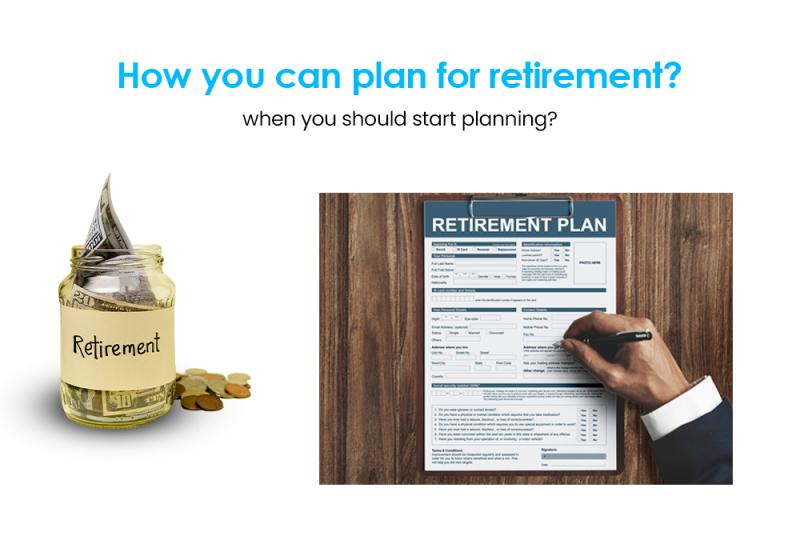How you can plan for retirement? when you should start planning?

Understanding retirement planning is one of the biggest financial choices that people will make in their lifetime. It is a process through which you have to gain knowledge of how to make your cash Work for you for the rest of the time that you retire.For instance, if you are just joining the workforce or are already approaching the age of retiring, then creating a plan that can greatly help in giving you a comfortable retirement experience that is free from stress can create a very big difference. This is how you can begin planning for your retirement and when to do that.
When Should You Start Planning for Retirement?
The short answer is: Ideally, it should be as early as possible. The sooner is it done, the more years are ahead for saving and investing and the bigger the accumulations from the interests compounded. It is more advisable to save for retirement from the time one is in the 20s or 30s so that through small regular savings, one can accumulate a large amount to cater for retirement expenses. But it is also possible to start planning for your financial future later and you do not have to wait for somebody else to plan it for you.
Why Start Early?
1. Compound Interest
This is the biggest advantage that comes with starting early. This factor helps your investments to grow by adding interest to your initial investment and the interest earned. If one can save $100 a month from the age of 25 up to when they are 65, and have an average annual return of 7%, at 65, he or she would have over $260000. If you take the same amount and begin to save at the age of 40, you will only have approximately $ 87,000 saved up.
2. More Investment Options
This means that when one begins early they have the opportunity to allocate their money into higher risk-higher rewards investments such as shares which are known to yield better returns over a long time. You can equally diversify your portfolio in the course of your working years so that as you approach retirement age, you can decide to invest in less risky instruments such as bonds or cash.
3. Peace of Mind
Planning early helps in avoiding the pressure of financial burdens when they come when they are old. That way, you’ll have a guideline of how you want your lifestyle to be, the amount of time you want to continue working, and when you want to retire.
How to Plan for Retirement
1.Assess Your Finances:
Analyze your income, spending, liabilities, and assets. When one understands his position, it becomes possible to know how much one can save and how much more he or she needs for retirement age. Consider all the existing superannuation or retirement accounts that you have.
2.Set Retirement Goals:
Choose what kind of life you want upon retirement—moving to a smaller house, traveling, or taking up new activities. Decide how much you will require, it is wise to use 70-80 percent of your current salary as a basis for yearly savings.
3.Create a Savings Plan:
Have a short-term and long-term plan for saving money. Make contributions to your superannuation or other related retirement savings and give voluntary contributions to lower taxes.
4.Diversify Investments:
It is wise to invest in different assets as this will help diversify risk while at the same time attaining more profits. Switch to less risky products to protect your money as you approach the retirement age.
5.Plan for Healthcare:
Education on health care and insurance policy should be given special attention by putting aside the necessary amounts of money. Explore long-term care insurance for possible future Scenarios.
6.Review and Adjust:
Always look at your plan to know whether you are on the right track or not. There may be different personal life events that will force you to make changes to the plan.
Conclusion
It can be understood that retirement planning is very important for the future. If possible start as early as possible to enjoy the compound interest returns or catch up if you are lagging. Check financially and specify objectives and investment opportunities. Remain active, change where possible, and succeed at having the ideal retirement with no stress.
Post Your Ad Here

Comments